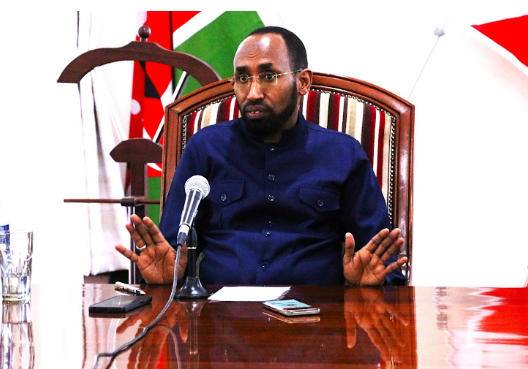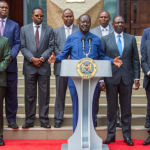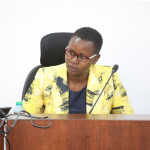North Eastern counties like Mandera have long been associated with poverty, terrorism, and drought, but Mandera is now emerging as a beacon of education. Governor Mohammed Khalif’s administration is dedicating a significant portion of its budget to education, aiming to transform the region.
Under Khalif’s leadership, secondary schooling is free for all students, with the county government covering their fees. This ensures that students can maintain regular contact with their teachers and are not sent home for lack of funds. Over the past two fiscal years, the county has allocated Sh810 million to the Elimu Kwa Wote initiative—Sh350 million for 2022-23 and Sh460 million for 2023-24.
When Khalif assumed office in 2022, he established a task force to gather input from residents and experts to guide the implementation of his education project. The task force’s recommendations have become the foundation for enhancing early childhood education and supporting secondary and tertiary students.
The administration has hired 450 additional ECDE teachers on permanent, pensionable terms, bringing the total to 807. College and university students receive 70% fee support, while those in teacher training colleges get 50% of their fees covered. CDF bursaries assist Mandera students attending schools outside the county.
Despite some challenges, such as occasional delays in fund disbursement, the program has been relatively smooth. “Sometimes we face delays due to exchequer issues, but the governor has partnered with financial institutions to provide funds for school operations,” one head teacher explained. “This is a significant improvement from the past when dropouts and lost learning time were major issues. The student-teacher contact hours are now high, and devolution is working here.”
Governor Khalif initiated the education project after witnessing the impact of a severe drought during his 2022 campaign travels. “During the campaign, I saw how the drought devastated families and forced schools to send children home because parents couldn’t pay fees,” Khalif recalled. “This drought led to the death of livestock, which our community relies on for education and livelihood.”
He promised that, if elected, his priority would be to create a sustainable pathway for educating Mandera’s youth. “My first action after taking office was to meet with school principals to discuss implementing the initiative. Teachers told me that running schools effectively was challenging,” he said.
“We agreed that with capitation from the national government, if we provide them with 60% of the funds collected from parents, schools can keep students in class. We made it policy to pay for everyone because education is crucial for the future.”
Khalif also noted that the program has boosted local economic activity. “Thanks to improved rainfall, many families have moved away from pastoralism, leading to a rise in livestock prices. Parents no longer need to sell their livestock cheaply in desperation.”
He highlighted that investing in education helps combat radical extremism. “By ensuring all our youths are in school, we prevent them from becoming targets for groups like al-Shabaab. Our support for students in colleges and universities also contributes to this effort. That’s why Mandera has minimal petty crime and robust security collaboration.”
Deputy County Commissioner Patrick Meso confirmed the decrease in major crimes, though defilement remains an issue. Education CEC Bashir Ibrahim Alio added that academic performance has significantly improved, even in remote areas, with some girls achieving top grades. “Performance has greatly improved due to uninterrupted contact hours, with 25 students achieving grades of A or A-minus last year—a notable achievement,” he said.



